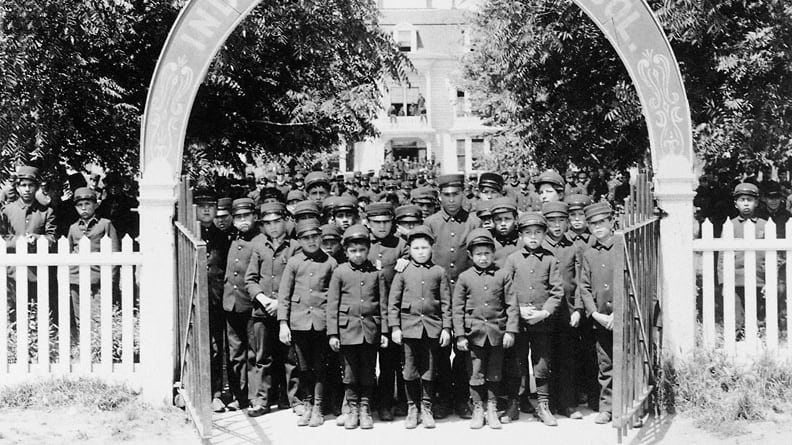In conjunction with Indigenous Peoples Day, two researchers are providing public access to a new database of more than 300 people who died at Chemawa School, a federal boarding school for Indigenous people located near Salem.
The genocidal legacy of boarding schools for Indigenous students received new attention this May in British Columbia, where the bodies of 215 children were discovered at one site. The history of Oregon’s schools is less known, but the two researchers examined what happened in their Washington County town.
The database was compiled by SuAnn Reddick, an independent historian and Pacific University archivist, and associate professor Eva Guggemos. Chemawa was originally located in Forest Grove, the town where Pacific University is now located. The school moved in 1885 to its current location near Salem.
Guggemos researched the school’s history in Forest Grove.
Two of those who died at the school are buried in unmarked graves there. Reddick has spent 20 years researching the present campus and has documented the deaths of nearly all of the 270 students and 30 nonstudents who are identified in the searchable database the two researchers built.
Of that number, researchers say 175 were buried at the Chemawa School Cemetary; two were buried in Forest Grove; 40 were returned home between 1880 and 1945 and 50 remained unaccounted for.
“We hope to honor the memories of the students who endured the horrible system that Chemawa once embodied: a system that was designed to exterminate Native culture and which imposed untold trauma on generations of Native people,” Guggemos said in a statement.
Chemawa is the oldest continuously operating boarding school for Indigenous people in the country—it serves students from across the West and is one of only four such schools still operating. In 2016, WW examined the unusual federal prosecution of a Chemawa student.
On Oct. 1, U.S Sens. Ron Wyden and Jeff Merkley (D-Ore.) said they were introducing legislation that would “investigate, document, and acknowledge past injustices of the federal government’s Indian Boarding School policies.”
Wyden said it’s past time for such a probe. “The sordid history of cruelty inflicted for centuries on Tribes in Oregon and nationwide sadly includes a big chapter on unspeakable injustice and forced relocation of Native children,” Wyden said. “While nothing can undo that horrific history, this legislation would provide a long-overdue reckoning for a brutal legacy that includes the forcible removal of children to so-called Indian boarding schools where they suffered abuse and trauma.”

